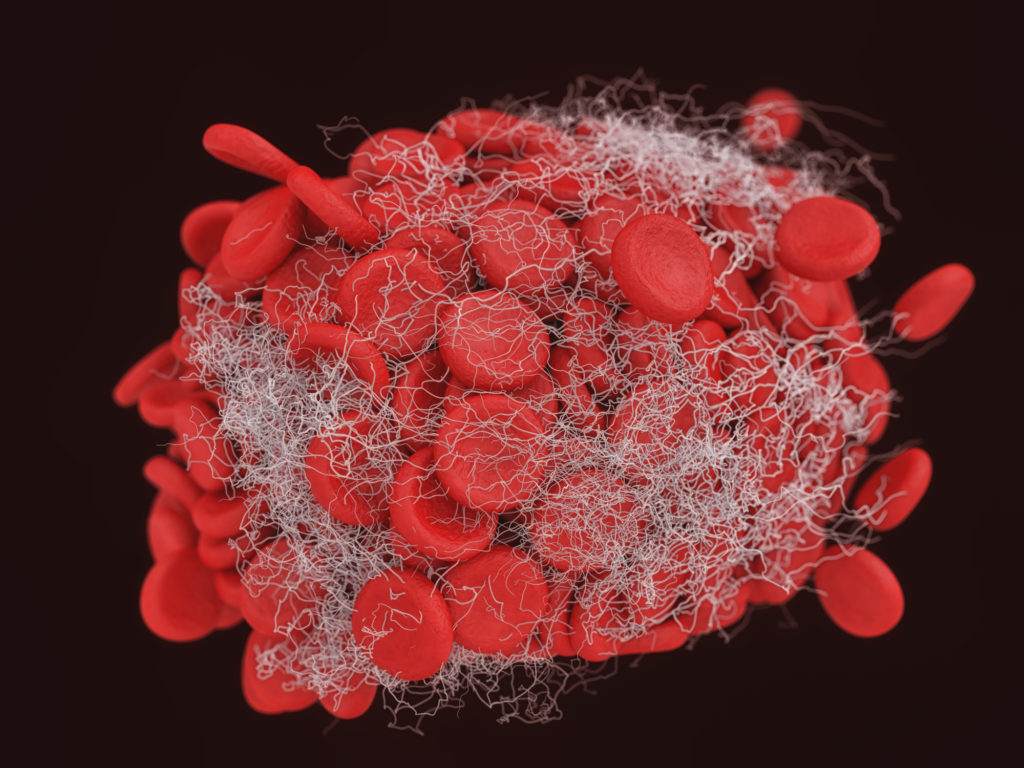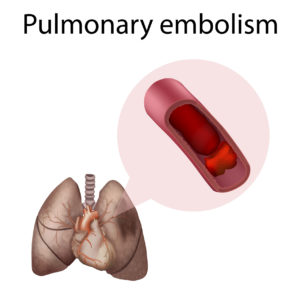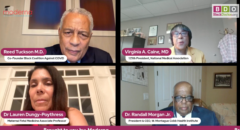
You may not hear much about blood clots, but they are a serious health condition that can even be fatal. Deep vein thrombosis, or DVT, is a blood clot that forms in a vein deep in the body. Blood clots occur when blood thickens and clumps together.
These clots can happen anywhere in the body, but usually occur in the lower leg or thigh.
Careful autopsies of 10 African-American victims of coronavirus COVID-19 show their lungs were clogged with blood clots, researchers reported Wednesday.
All 10 patients had underlying conditions that have been shown to worsen infection, including high blood pressure, diabetes and obesity. But genetic factors could also be at play, the team at LSU Health New Orleans School of Medicine said.
The findings, published in the Lancet Respiratory Medicine, may help explain why blacks are suffering so much more from Covid-19 in the US and in some other countries such as Britain, the researchers said.
The 10 patients all came to the hospital after having three to seven days of mild cough and fever. All suddenly collapsed or had sudden trouble breathing.
"One of the things people are seeing with Covid now is the cytokine storm that is generated by the virus," head of pathology, Vander Heide said to CNN. The cytokine storm is the flood of inflammatory immune system compounds some people produce in response to the infection. "We can see it in our sections of the lungs. We see the viral effects in the cells," he added.
The coronavirus itself could be causing the effect, or the patients being affected might have their own predisposition to cytokine storms and blood clotting, Vander Heide said.
"I think obesity is important in our population," Vander Heide continued. Fat tissue activates inflammatory chemicals -- one of the mechanisms that underlies obesity's link to a variety of disease. Covid-19 infection generates even more inflammation, which doctors believe is involved in the damage caused by Covid-19 and, perhaps, the generation of blood clots.
Obesity is one of the major underlying health disparities that plague our communities of color. Much may be due to our diet.
Blood clots may dissolve on their own, but if they don't and are left untreated, the clots can detach and travel through your bloodstream to your lungs, blocking blood flow and causing pulmonary embolism.

Despite genetic risk factors, to protect yourself and your family, it's good to know these nine potentially life-threatening warning signs:
Swelling - This can happen in the exact spot where the blood clot forms, or your entire leg or arm could puff up.
Change in color - You might notice that your arm or leg takes on a red or blue tinge, or gets warm or itchy.
Pain - As the clot gets worse, you may hurt or get sore. The feeling can range from a dull ache to intense pain.
Lower leg cramp - If the clot is in your calf or lower leg, you may feel like you have a cramp or charley horse.
A blood clot that travels to your lungs is called a pulmonary embolism (PE). Symptoms that could be a sign of a PE are:
- Sudden shortness of breath that isn’t caused by exercise
- Chest pain
- Palpitations, or rapid heart rate
- Breathing problems
- Coughing up blood








